News Stories about WWALS 2016.
For the rest see News.
-
Adam Dubbin, World Waters Weekly,
30 December 2016 (WWALS blog post),
…breaking news, if you will. John S. Quarterman has been selected as the Suwannee Riverkeeper. If you’re not familiar with the Riverkeeper role, it’s part of a bigger organization called the Waterkeeper Alliance. It’s a sort of, it’s a way to formalize the care of these rivers, and also these people are river warriors, out there documenting things and providing the type of information we need to know if somebody is not in compliance or if something is not right. They basically are boots on the ground.
I have not met John personally, but I have interacted with him a lot and I’ve read a lot of his work. He runs WWALS Watershed Coalition webpage which is extremely informative; very well-vetted information and I use it a lot when I am trying to clarify things. So this guy he’s a great addition to what we’re trying to do here. Well, not an addition; he’s been here all along, but he’s now been given an official role on the Suwannee River. So I just want to send a shout-out to him and let you all know that river is now in good hands.
-
Thomas Lynn, Valdosta Daily Times, 16 December 2016,
Pipeline protests gain momentum in Florida,
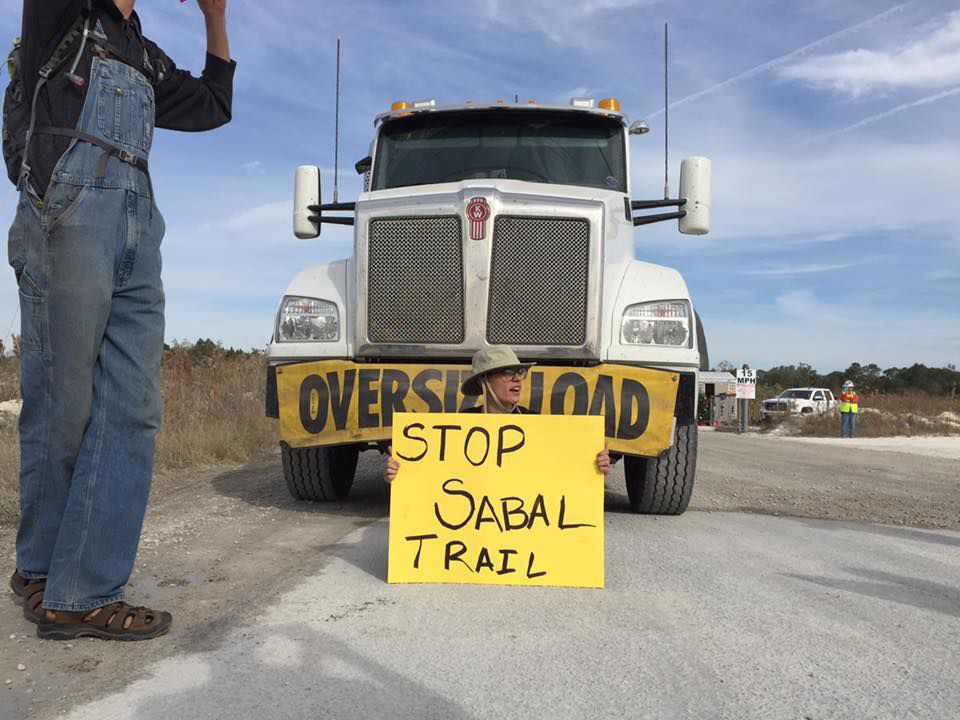 Debra Johnson is called the mother of the Sacred Water Camp and is a
member of the WWALS Watershed Coalition, a volunteer organization
that aims to protect rivers in southern Georgia and northern
Florida.
Debra Johnson is called the mother of the Sacred Water Camp and is a
member of the WWALS Watershed Coalition, a volunteer organization
that aims to protect rivers in southern Georgia and northern
Florida.
-
John S. Quarterman, Citrus County Chronicle, other voices, 25 December 2016,
Stop gas pipeline; invest in solar (WWALS blog post with illustrations and links to evidence)
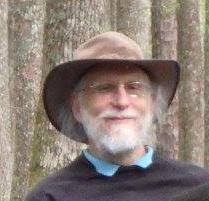 Sabal Trail and FDEP assured us there would be no problems drilling a 36-inch natural gas pipeline through the fragile karst limestone under the Suwannee River and the Withlacoochee (south) River in Florida, yet
already Sabal Trail’s pilot hole under the Withlacoochee (north) River in Georgia caused a frac-out of drilling mud into the river and a sinkhole. The U.S. Army Corps of Engineers should halt construction and do a Supplemental Environmental Impact Statement.
Sabal Trail and FDEP assured us there would be no problems drilling a 36-inch natural gas pipeline through the fragile karst limestone under the Suwannee River and the Withlacoochee (south) River in Florida, yet
already Sabal Trail’s pilot hole under the Withlacoochee (north) River in Georgia caused a frac-out of drilling mud into the river and a sinkhole. The U.S. Army Corps of Engineers should halt construction and do a Supplemental Environmental Impact Statement.
-
Larry Buhl, DeSmogBlog (and Enjeux énergies et environnement), 9 December 2016,
Sabal Trail Opponents Say Pipeline Is Part of Florida’s ‘Overbuilt’ Gas Infrastructure,
(WWALS blog post)
John Quarterman, president of [… WWALS] Watershed Coalition, recalled that Sabal Trail representatives, when pressed at public hearings, maintained that, as a pipeline company they had no idea where gas going through their pipes might end up, a claim that he and other activists find hard to believe.
Chris Pedersen, writing for the industry publication OilPrice.com in October 2014, wrote that Transco and Sabal Trail pipelines could be used to explore new overseas markets for Utica and Marcellus Shale gas.
Sabal Trail opponents say gas flowing through the Sabal Trail pipeline could easily end up at export terminals on the Florida coast. For example,…
- Savannah Elliott, Gainesville Scene, 14 December 2016, Organization Against Sabal Trail Pipeline Swells Across Florida
-
Sabal Trail Resistance, Earth First!, 13 December 2016,
Stop The Suwannee River Crossing!
Calling all water protectors and anti-pipeline rebels to the Sabal Trail Resistance (STR),
Additionally, the HDD site on the Withlacoochee River in Georgia, which is also currently being drilled, has been found in violation for pressure cracks that allowed drilling fluid to migrate upward into the river and likely into the Floridan Aquifer to contaminate the water.
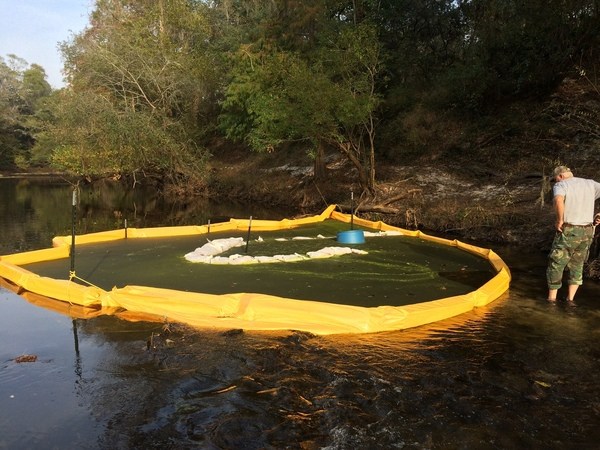
600×450 Turbidity curtains with human for scale (Chris Mericle), in Sabal Trail still leaking drilling mud into the Withlacoochee River in GA, by Deanna Mericle, 12 November 2016 -
Anne Schindler, WTLV, 5 December 2016:
“Sinkhole raises collapse concerns at pipeline drilling site”,
The company says the sinkhole, which appeared Nov. 5, has nothing to do with the Nov. 17 incident, in which drilling mud penetrated the Withlacoohee River from operations below.
“The two items you referenced are unrelated,” spokesperson Andrea Grover said in a written statement. “The sinkhole is in an upland and approximately 1,400 feet from the previously reported inadvertent release.”
Doesn’t Sabal Trail’s $3 billion dollar pipeline connect those two items?
- 2016-12-04: Larry Buhl, DeSmogBlog, 4 December 2016, Critics Call $3 Billion Sabal Trail Pipeline Florida’s Dakota Access Pipeline (WWALS blog post: National coverage of Sabal Trail as Florida’s DAPL: #NoDAPL, #NoSabalTrail, #WaterIsLife)
- 2016-12-03: Harriet Heywood, Citrus County Chronicle, 3 December 2016, Sabal Trail forum was informative (WWALS blog post)
-
Karen Edelstein, FracTracker, 29 November 2016,
The Sabal Trail Pipeline: A Sinking Feeling,
Even in the phases of construction, environmentalists in Georgia discovered that the Sabal Trail pipeline had started leaking drilling mud from a pilot hole into the Withlacooche River in late October, and continued to ooze turbid mud for at least three weeks. Environmental advocates from the WWALS … Watershed Coalition raised concerns that if a pilot hole could cause such a leakage, what could happen once full-scale directional drilling was occurring?
-
Michael D. Bates, Citrus County Chronicle, November 26, 2016,
“In the pipeline,”
“the project is proceeding as scheduled” and “We are on target for an end-of-June in-service date…”
Hm, that’s a month after their previous May 2017 in-service date.
-
Derrek Vaughn, Valdosta Daily Times, 17 November 2016,
WWALS Watershed Coalition hold demonstration (WWALS blog post),
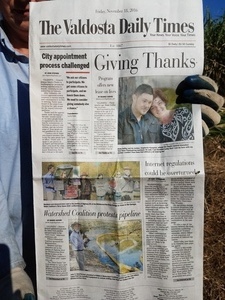
“Demonstrators gathered to protest the Sabal Trail pipeline and participate in the “Dirty Dozen” waterways conference call.”
WWALS Watershed Coalition sponsored the demonstration.
Members and demonstrators met in the median of Highway 84 at the Withlacoochee River Bridge to listen to the Georgia Water Coalition’s “Dirty Dozen 2016” conference call.
-
Georgia Water Coalition, Waterkeeper Alliance, 17 November 2016,
“Dirty Dozen†Calls Out Most Threatened Waters in Georgia,
Written by Georgia Water Coalition, a group of more than 230 organizations including Altamaha Riverkeeper, Apalachicola Riverkeeper, Chattachoochee Riverkeeper, Flint Riverkeeper, Ogeechee Riverkeeper, Satilla Riverkeeper, Savannah Riverkeeper, St. Marys Riverkeeper, and WWALS Watershed Coaltion, a Waterkeeper Affiliate.
Georgia’s leading water coalition named its “Dirty Dozen†for 2016, highlighting 12 of the worst offenses to Georgia’s waters. The annual Dirty Dozen shines a spotlight on threats to Georgia’s water resources. It also highlights the polluters and state policies or failures that threaten the health and safety of Georgia’s waters. Nine Riverkeepers and Affiliates are members of the Georgia Water Coalition.
“This year’s report highlights the real, human costs of dirty energy production in Georgia’s communities,” said Joe Cook, Advocacy and Communication Coordinator for Coosa River Basin Initiative. “Toxic chemicals from coal plants are showing up in groundwater wells and in our rivers while risky proposals for transporting and extracting gas and oil threaten water supplies, wildlife and property rights.”
-
Bruce Ritchie, Politico, 17 November 2016,
Sabal Trail spill, protests across U.S. spur debate over natural gas pipeline in Florida,

TALLAHASSEE — Environmentalists are raising concerns over a drilling mud discharge last month from a natural gas pipeline being dug under the Withlacoochee River in Georgia that could damage the river and downstream springs in Florida.
The criticisms come as Native Americans have drawn national attention to their opposition to the Dakota Access Pipeline in North Dakota, and 14 people protesting the pipeline in Florida were arrested Saturday in Gilchrist County of disorderly conduct and other charges.
Sabal Trail Tranmission company officials said the discharge in the Withlacoochee River was cleaned up as they installed a floating yellow turbidity curtain, similar to an oil spill boom, to prevent the spread of two gallons of drilling mud. The river flows into Florida 15 miles downstream and eventually into the Suwannee River.
The Georgia Water Coalition on Wednesday listed the Sabal Trail pipeline on its annual “dirty dozen” list of threats to rivers in the state. Several of those rivers, including the Chattahoochee, Flint and Withlacoochee rivers, eventually flow into Florida.
John Quarterman of the WWALS Watershed Coalition environmental group in Georgia said the public was told such accidents were not possible.
“So what else can happen that they said couldn’t happen?” Quarterman asked. “And why should we take that risk or any risk for this pipeline that has never been of any benefit to the state?”
-
 Ashlyn Becton, WALB, 16 November 2016,
Environmentalist raise awareness about Sabal Trail Pipeline (WWALS blog post),
Ashlyn Becton, WALB, 16 November 2016,
Environmentalist raise awareness about Sabal Trail Pipeline (WWALS blog post),
Folks from North Florida and South Georgia held a protest at the Withlacoochee River Wednesday and listened to a news conference announcing the Georgia Water Coalition’s Dirty Dozen.
The report highlights the worst offenses and greatest threats to Georgia’s bodies of water.
The 3.2-billion dollar Sabal Trial pipeline will pass through nine south Georgia counties, and water coalition members are not happy about it.“There is no excuse for this pipeline and it is massively destructive,” said John Quarterman.
Quarterman is the president of the WWALS Watershed Coalition out of Hahira.
That group has fought the pipeline since it was announced in 2013, including a 4-month legal challenge.
“Sabal Trail told us in a legal case in Florida that we would never, it couldn’t happen that drilling would cause things to bubble up in the area. It happened right over there just 2,000 feet up stream,” said Quarterman.
-
Nick Evans, WUSF, 14 November 2016,
Drilling Mud Leak In South Georgia Raises New Sabal Trail Pipeline Concerns
(WWALS blog post)
Water activists are raising the alarm over a South Georgia drilling leak in the Withlacoochee River. Sabal Trail is drilling beneath the river to build a more than 500-mile natural gas pipeline stretching from Alabama to Florida.
WWALS Watershed Coalition works to protect….
-
Steve Patterson, Jacksonville.com, 14 November 2016,
Gas pipeline project headed to Suwannee River leaks into Georgia waterway; sparks environmental worries (WWALS PR),

WWALS member Chris Mericle inspecting the leak site.A leak in the shaft for a natural gas pipeline beneath a Georgia river has reinforced environmental worries at Florida’s Suwannee River and other waterways in the pipeline’s path.
The leak into the Withlacoochee River near Valdosta, Ga. underscored earlier concerns about twin hazards from the Sabal Trail pipeline: that pipeline shafts could leak contaminants into rivers, and let river water escape through cracks in the area’s sinkhole-riddled bedrock.
“What they said couldn’t happen did happen,” said John Quarterman, president of the WWALS Watershed Coalition, Inc., a group fighting work on the 515-mile pipeline planned to cross three states.
- Jim Tatum, Our Santa Fe River, 22 October 2016,
Sabal Trail Under Construction (WWALS blog post),
 John Quarterman of WWALS organized and executed today Oct. 22, 2016 a flight along the Sabal Trail construction zone along the Suwannee basin. Flight covered was from the Santa Fe River crossing south of Branford to Moultrie, Georgia. Corridor covered from Suwannee, Hamilton in Florida to Lowndes, Brooks and Colquitt Counties in Georgia.
John Quarterman of WWALS organized and executed today Oct. 22, 2016 a flight along the Sabal Trail construction zone along the Suwannee basin. Flight covered was from the Santa Fe River crossing south of Branford to Moultrie, Georgia. Corridor covered from Suwannee, Hamilton in Florida to Lowndes, Brooks and Colquitt Counties in Georgia.
Hats off to John Quarterman for the organizing, research and execution, and also to Roy Zimmerman, volunteer pilot from Deland who gave his time, use of aircraft and aviation gas. Additional crew was Dominic Gheesling, professional photographer and your historian from OSFR. Look for the well-researched, heavily-documented, link-laden WWALS post soon to come out. Thank you John, for this opportunity.
-
Thomas Lynn, Suwannee Democrat, 18 October 2016,
Sabal Trail protesters camp outside pipeline route (previous WWALS blog post),
 Merrillee Malwitz-Jipson, with the Sierra Club, stopped by the
protest early Monday morning. She has been one of the most active
voices against the Sabal Trail pipeline.
Merrillee Malwitz-Jipson, with the Sierra Club, stopped by the
protest early Monday morning. She has been one of the most active
voices against the Sabal Trail pipeline.
“This company has been given free range to do anything they want,” Jipson said. “There’s no oversight at all.”
She mentioned that Sabal Trail was granted a permit from the Federal Energy Regulatory Commission based on a Environmental Impact Statement (EIS) completed by the company. Many other protest groups have criticized the EIS as inaccurate and deceptive.
Along with the WWALS Watershed Coalition, Malwitz-Jipson has fought to have the Army Corps of Engineers do its own EIS with little success.
The protesters are working on growing their numbers and plan on staying at the encampment for as long as they can.
-
 Desiree Carver, Valdosta Daily Times, Friday, September 23, 2016, front page,
Sabal protests continue (LAKE blog post),
Desiree Carver, Valdosta Daily Times, Friday, September 23, 2016, front page,
Sabal protests continue (LAKE blog post),
The WWALS Watershed Coalition stood on the bridge between Brooks and Lowndes County Saturday to show solidarity with Dakota Access Pipeline opponents in Dakota and to continue its battle against the Sabal Trail natural gas pipeline.
According to a release from WWALS, the stance was to “help demand the Army Corps reevaluate its permit for Sabal Trail just like its permit for the Dakota Access Pipeline.”
-
Gloria Tatum, Atlanta Progressive News, 12 September 2016,
Proposed SabaL Gas Pipeline runs through aquifer, wetlands, sinkhole territory (WWALS blog post),
“This is the last gasp of the dying fossil fuel industry….now that there are more solar power jobs than in all of oil and gas extraction,” John Quarterman, President of …
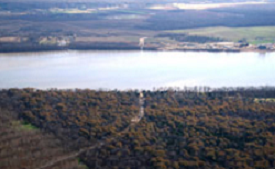 WWALS Watershed Coalition in south Georgia and north
Florida, told Atlanta Progressive News.
WWALS Watershed Coalition in south Georgia and north
Florida, told Atlanta Progressive News.
“Solar is the least expensive of all power sources, does not require three years to permit it, doesn’t require eminent domain, and [you] can install a big solar plant in a few months,” Quarterman said….
“We are taking risks with our sole source of drinking water,” Quarterman said.
“What we are seeing is short-term profiteering at the expense of our water, our environment, and our property rights,” Quarterman said.
-
Christopher Curry, Gainesville Sun, 14 August 2016,
In north Florida, the pipeline will run through conservation areas, under rivers, near springs, and sinkhole-vulnerable karst geological areas,
With permits in hand, the companies behind Sabal Trail applied to FERC to start construction on or before Aug. 17. FERC already approved the pipeline project in February and now is looking at whether the companies behind Sabal Trail met all conditions of that approval before green-lighting construction.
In an email, Spectra Energy spokeswoman Andrea Grover gave a target date of “late August” to start construction. She said the more than 500-mile route will be divided into five segments and construction on each will start simultaneously.
The company is engaged in authorized pre-construction activities such as surveys and gopher tortoise trapping and relocation, Grover wrote.
 Already, pipe is being stored in an area north of Lake City, a fact
made public by the WWALS Watershed Coalition, a south Georgia and
north Florida group opposed to the pipeline project. The group
argued that the storage yard was not an allowed pre-construction
activity.
Already, pipe is being stored in an area north of Lake City, a fact
made public by the WWALS Watershed Coalition, a south Georgia and
north Florida group opposed to the pipeline project. The group
argued that the storage yard was not an allowed pre-construction
activity.
Grover wrote that a transportation contractor leased the storage yard to move “the pipe from the pipe mill to a location closer to the project to temporarily store pipe.”
The Army Corps of Engineers did not grant a request from the Madison County Commission in north Florida to further review potential environmental impacts of Sabal Trail’s main line, including “a site inspection to determine the actual proximity of active sinkholes and other features of the aquifer and cave systems to the proposed pipeline route,” records posted on the WWALS Watershed Coalition Web site showed.
Madison County commissioners noted that the pipeline passes through neighboring Hamilton County near the Withlacoochee River and expressed concerns about potential pollution to the river, area wells and Madison Blue Spring, either from construction or a possible pipeline leak later.
The U.S. Army Corps of Engineers declined the commission’s request, saying information already gathered about the project is sufficient for them to make an accurate evaluation.
-
Jim Tatum, OSFR, 11 August 2016,
Unusual Meeting in Live Oak — Some Success (WWALS blog post),
An unusual meeting today, Tuesday, August 9, 2016 at the Live Oak headquarters of SRWMD. Unusually long, as it continued well into the afternoon after lunch. The reason for this was that the public comment did not finish until almost 12 o’clock. And the reason for that, was that a large group from Gainesville, Fort White, Madison, Hamilton County, and Valdosta, GA came to express their concerns to the governing board.


John Quarterman, WWALS; Chris Mericle, WWALSNo fewer than 11 people spoke, mostly against the pipeline company which has pushed relentlessly into Florida and run roughshod over landowners, falsified its reports to FERC and brazenly trucked its pipe illegally into Florida before obtaining the required permit.
A measure of success was attained today when Chairman Quincey, with approval of Executive Director Noah Valenstein, announced that the board would write a letter of concern to the Army Corps of Engineers regarding the Sabal Trail controversy over the inaccurate Environmental Impact Statement (EIS.)
-
Thomas Lynn, Suwanee Democrat, 7 July 2016,
Residents voice concern for Sabal Trail grant,
Before and after the board voted, concerned citizens spoke against the board taking any money. Sabal Trail is a controversial topic due to the proposed pipeline that would cut through Suwannee County and the Suwannee River.
The proposed route of the pipeline has come under scrutiny from various watershed groups including the … [WWALS] Watershed Coalition.
-
Jake Galvin and Dan Christensen, Florida Bulldog, 28 June 2016, Push to block Sabal Trail gas pipeline looks to enlist U.S. Army Corps of Engineers,
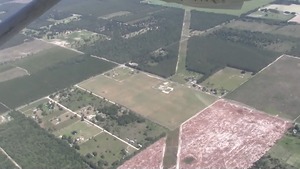 In an escalating effort to block the controversial Sabal Trail
natural gas pipeline, opponents are asking the U.S. Army Corps of
Engineers to examine allegations that information about potential
environmental hazards was overlooked during the regulatory
process….
In an escalating effort to block the controversial Sabal Trail
natural gas pipeline, opponents are asking the U.S. Army Corps of
Engineers to examine allegations that information about potential
environmental hazards was overlooked during the regulatory
process….
The WWALs Watershed Coalition, whose name is an acronym for the watersheds of the Withlachoochee, Willacooche, Alapaha, Little and Upper Suwannee rivers, has spearheaded environmental opposition to Sabal Trail.
-
Maryvonne Devensky, Gainesville Sun, 24 April 2016,
Maryvonne Devensky: Pipeline can still be reconsidered,
The Sabal Trail pipeline project is not a done deal. Since January, there has been a momentum in Georgia and Florida to oppose this natural gas pipeline from citizens, officials and environmental groups because of very serious concerns.
 Members of the Suwannee St Johns Sierra Club and [WWALS] … Watershed
Coalition led a hike in the Suwannee River State Park to show how
the area tagged for construction is full of sinkholes and how the
Sabal Trail documentation is flawed. Johanna deGraffenreid, wetlands
advocate with the Gulf Restoration Network, is coordinating efforts
to make sure the public and our elected officials have the right
information on the Sabal Trail project.
Members of the Suwannee St Johns Sierra Club and [WWALS] … Watershed
Coalition led a hike in the Suwannee River State Park to show how
the area tagged for construction is full of sinkholes and how the
Sabal Trail documentation is flawed. Johanna deGraffenreid, wetlands
advocate with the Gulf Restoration Network, is coordinating efforts
to make sure the public and our elected officials have the right
information on the Sabal Trail project.
-
Michael Praats, Valdosta Daily Times, 20 April 2016,
BOC Chairman: Sabal Trail vote not endorsement,
VALDOSTA—The proposed Sabal Trail natural gas pipeline has some residents concerned with property values, environmental impact and a plethora of other issues. John Quarterman, speaking on behalf of the WWALS Watershed Coalition, has requested the county rescind its Sabal Trail agreement and stop the sale of easements to Spectra Energy.
Quarterman is leading the charge to prevent pipeline construction and publicly opposed a decision by the Lowndes County Commission to sell the easements.
- Adam Floyd, posting SpectraBusters PR, including a link to the PDF flyer, ValdostaToday, 19 April 2016, OPINION: Short-term jobs are not worth long-term Sabal Trail risk,
LIVE OAK, Fla. — Local residents and half a dozen environmental organizations want applicants at Sabal Trail pipeline job fairs to know a job for a few weeks isn’t worth risking drinking water for all our families and children and grandchildren.
Opponents of the Sabal Trail fracked methane pipeline and supporters of solar power include the Suwannee-St Johns Sierra Club Group, St Johns Riverkeeper, WWALS Watershed Coalition, Our Santa Fe River, Earth Ethics, Gulf Restoration Network, and SpectraBusters.
-
John S. Quarterman, Valdosta Daily Times, 10 April 2016,
Thanks for a historic victory against Sabal Trail,
The Georgia House on March 22nd by an unprecedented 34 ayes to 128 nays rejected easements for Sabal Trail
 to drill our Withlacoochee
and other Georgia Rivers. This was a historic victory by the Georgia
Water Coalition, including Georgia Sierra Club, WWALS, Flint
Riverkeeper, Chattahoochee Riverkeeper, plus SpectraBusters, and
thanks to all of you who called their state reps,
to drill our Withlacoochee
and other Georgia Rivers. This was a historic victory by the Georgia
Water Coalition, including Georgia Sierra Club, WWALS, Flint
Riverkeeper, Chattahoochee Riverkeeper, plus SpectraBusters, and
thanks to all of you who called their state reps,
That same day….
-
Nadia Steinzor, Earth Island Journal, in Truthout, 9 April 2016,
Darkening Drillers’ Hopes in the Sunshine State,
Like everywhere else, fighting oil and gas in Florida increasingly means taking on big pipeline projects. The biggest and most hotly contested of all is the Sabal Trails Transmission Pipeline, proposed to run over 500 miles from Alabama through Georgia to Florida, and include at least five compressor stations along the way. The gas would be used to generate electricity and supply industries through two utility companies, Florida Power and Light and Duke Energy of Florida. The Sabal Trails Pipeline, which would cross numerous conservation areas, wetlands, rivers, and aquifers, has engendered strong resistance from watershed protection groups [WWALS], environmental advocates [Sierra Club], and residents [SpectraBusters] along the proposed route.
-
John S. Quarterman, WWALS blog, 6 April 2016,
Suwannee BOCC votes 4:1 to ask Army Corps of Engineers to investigate Sabal Trail 2016-04-05,
 Yet Florida law requires citizens to be able to speak, and local landowner Wayne Ellison was first to the podium, saying he most definitely was still opposed to the pipeline, since Sabal Trail wants to run it through his cow pasture full of sinkholes, and what would become of his cows?
Yet Florida law requires citizens to be able to speak, and local landowner Wayne Ellison was first to the podium, saying he most definitely was still opposed to the pipeline, since Sabal Trail wants to run it through his cow pasture full of sinkholes, and what would become of his cows?
Also speaking were Debra Johnson of Suwannee County and SpectraBusters, Jim Tatum for Our Santa Fe River, Chris Mericle of Hamilton County and a WWALS board member, and John S. Quarterman, WWALS president. All five speakers are WWALS members. Suwannee County takes its own video, so in a few days you will be able to see everything we said.
-
Jim Tatum, Our Santa Fe River, 5 April 2016,
Suwannee Co. BOCC Votes to Send Letter to Army Corps of E. noting Sabal Discrepencies,
 Tonight, April 5, 2016, the Suwannee County board of commissioners voted to send a letter to the Army Corps of Engineers expressing their concerns regarding the study for the proposed Sabal Trail pipeline. As outlined in our post “Has Sabal Trail Withheld Vital Information?,†another geological study done by someone not paid by Sabal returned very different conclusions.
Tonight, April 5, 2016, the Suwannee County board of commissioners voted to send a letter to the Army Corps of Engineers expressing their concerns regarding the study for the proposed Sabal Trail pipeline. As outlined in our post “Has Sabal Trail Withheld Vital Information?,†another geological study done by someone not paid by Sabal returned very different conclusions.
- Debra Johnson, SpectraBusters, 5 April 2016, Suwannee County Votes to Send Letter to Army Corps Of Engineers Asking for Independent Geological Study,
Tuesday April 5th Suwannee County voted 4 to 1 , with chairman Bashaw dissenting, to send a letter requesting that the Corps perform an independent environmental study concerning the geological omissions Sabal Trail withheld from their Environmental Study submitted to FERC to receive a permit to bore under the Suwannee River. After comparing Sabal Trail’s EIS with that of local geologist Dennis Price, Chris Mericle discovered omissions and discrepancies in this report endangering the Floridan Aquifer which supplies 60% of Florida’s water supply as well as endangering millions of citizens and hundreds, if not thousand, of springs. Sabal Trail submitted information for the pipeline permit to FERC stating the closest sinkhole to the pipeline route boring under the Suwannee River would be 750′ from the pipeline which is not true. Commissioner Wainwright and other BOCC officials discovered one active sinkhole 75′ from the 36″ fracked gas pipeline. In fact there is a sinkhole smack in the middle of the pipeline route with sinkholes covering the entire area.
Price, Mericle, and Johnson are WWALS members; Mericle is a WWALS board member.
- Carl McKinney, Suwannee Democrat, 1 April 2016,
Suwannee County Commission to discuss Sabal Trail sinkholes, (WWALS blog post)
 At its next meeting, the commission will consider sending a letter
to the U.S. Army Corps of Engineers, which must issue a permit for
the pipeline project.
At its next meeting, the commission will consider sending a letter
to the U.S. Army Corps of Engineers, which must issue a permit for
the pipeline project.
The letter would mimic one Hamilton County recently voted to send, said Suwannee County Commissioner Wesley Wainwright….
Several local residents, in addition to environmental groups, oppose the pipeline. One of the concerns, which has been brought up repeatedly by groups such as WWALS Watershed Coalition, is the sensitive nature of Florida’s geology….
The Suwannee County Commission have its next meeting 6 p.m. Tuesday at the Suwannee County Judicial Annex, 218 Parshley St. SW.
-
Irina Slav, OilPrice, 31 March 2016, Gas Pipeline Uses 160 Eminent Domain Suits To Get Property In 3 States, picked up by SpectraBusters blog post),
There are a lot of groups fighting the construction of the pipeline, and the Sabal Trail is likely to have a tough time getting the necessary right of way.
The link on groups goes to http://spectrabusters.org/allies/, and of course WWALS has long been a SpectraBusters Ally.
-
L. Elliott Jones, Albany Herald, 28 March 2016, L. ELLIOTT JONES: Construction of Sabal Trail pipeline is not inevitable
GUEST COLUMNIST: Efforts are still under way to prevent the construction of the gas pipeline (annotated SpectraBusters blog post),
The preventable group also includes other entities, among them the WWALS Watershed Coalition representing river users and landowners of the Suwannee River basin, and the web-based information-sharing citizen organization, Spectrabusters.org. The preventable group also includes at least 160 landowners along the proposed pipeline route in Alabama, Georgia, and Florida who failed to reach adequate settlements with Sabal for the value of their land, according to a March 22 report in the Orlando Sentinel. Sabal began filing eminent-domain lawsuits against those unwilling landowners in federal court in mid-March, and more may follow. Defending landowners accuse Sabal of being unwilling to consider alternative pipeline routes, of offering insufficient compensation for pipeline land, for unavoidably damaging adjacent property, and for lacking required permits.
- Kristi E. Swartz, EEnews, 28 March 2016, PIPELINES: Ga. lawmakers move to block 2 interstate projects (WWALS blog post),
A coalition of environmental groups has been fighting the project for more than a year. After the state Board of Natural Resources approved easements last fall, Sabal Trail’s opponents came up with a strategy for the legislative session.
That’s the Georgia Water Coalition (GWC), which includes Waterkeeper® Alliance members Flint Riverkeeper and Chattahoochee Riverkeeper and Affiliate WWALS Watershed Coalition, along with Sierra Club, environmental law firm Greenlaw of Atlanta, Georgia River Network, SpectraBusters, and other groups and individuals too numerous to mention, on the statehouse floor in Atlanta, calling and emailing legislators, letters to the editor, and blogging on the Internet, facebook, twitter, etc.; see WWALS writeup, and about Sabal Trail see the Dirty Dozen 2015,in which GWC listed Sabal Trail for the second year running, at the nomination of WWALS.
- John S. Quarterman, WWALS blog, 22 March 2016, Georgia legislature overwhelmingly rejects river easements for Sabal “Sinkhole†Trail fracked methane pipeline,
John S. Quarterman, President, WWALS Watershed Coalition, the Waterkeeper® Affiliate for the Withlacoochee River and Okapilco Creek, explained, “So the governor can’t veto what he doesn’t get. Sabal Trail’s Georgia river easements are dead!â€
- Aaron Gould Sheinin, The Atlanta Journal-Constitution, 22 March 2016,
Georgia House defeats bill to grant easements for S. Georgia pipeline,
The Georgia House on Tuesday soundly rejected a controversial measure to grant easements to a Houston-based energy company to build a methane gas pipeline through parts of South Georgia.
Senate Resolution 954 was crushed by a vote of 34-128 after more than an hour of debate.
- John S. Quarterman, Valdosta Daily Times, 22 March 2016,
Still possible to keep Sabal Trail out,
 Many new groups and individuals have realized this and have joined
the opposition to Sabal Trail. And all its ugly stepsisters:
five already-approved liquid natural gas export operations on both
Florida coasts, two schemes to ship LNG by rail and road as far as
Miami and Jacksonville, and
another natural gas pipeline already in
FERC permitting by Kinder Morgan to connect Sabal Trail from
Suwannee County to
Jaxport, which has been loudly gearing up for LNG
export for years. Enough greed for profit at our expense!
Many new groups and individuals have realized this and have joined
the opposition to Sabal Trail. And all its ugly stepsisters:
five already-approved liquid natural gas export operations on both
Florida coasts, two schemes to ship LNG by rail and road as far as
Miami and Jacksonville, and
another natural gas pipeline already in
FERC permitting by Kinder Morgan to connect Sabal Trail from
Suwannee County to
Jaxport, which has been loudly gearing up for LNG
export for years. Enough greed for profit at our expense!
You can help call on our elected officials, local, state, and federal, to stop this pipeline boondoggle that benefits nothing but greed for profit by a few companies.
Urge your Georgia House member to strip Sabal Trail easements from SR 954.
Ask Georgia, Florida, and the U.S. Army Corps of Engineers not to issue any permits; see www.wwals.net/issues/stt/.
Let the sun rise over the rivers and aquifer on which our life depends.
- Paulo Salazar, WTXL, 1 February 2016,
Sabal Trail Pipeline Causing Concern for Suwannee County Residents,
[WWALS board member] Chris Mericle has voiced in opposition of the project and says, “The pipeline is going through some very sensitive areas that actually will be drilled underneath the Suwannee River State Park.”
-
Jason Stewart, Valdosta Daily Times, 27 January 2016, County approves Sabal easement,
William Langdale of Langdale Vallotton LLP disputed the domain rights.
“As Sabal Trail’s proposed use does not appear to furnish any natural gas in the state of Georgia,” Langdale said, “it is not authorized to exercise eminent domain rights pursuant to O.C.G.A. 22-3-88.”…
Quarterman challenged Slaughter’s assertion the agreement is in the best interest of the county and is like any other utility.
“I’m curious,” Quarterman said, “how this pipeline, which provides nothing to Lowndes County, is like any other utility.”
- Adam Floyd, Valdosta Today, 27 January 2016, LOWNDES COUNTY GRANTS EASEMENT FOR SABAL TRAIL PIPELINE
-
 Noelani Mathews, WCTV, 27 January 2016, Lowndes County Leaders Vote 4-1 for Sabal Trail (WWALS blog post)
Noelani Mathews, WCTV, 27 January 2016, Lowndes County Leaders Vote 4-1 for Sabal Trail (WWALS blog post)
“They’re supposed to represent the people of the County, not the salesman for a pipeline company from Houston, Texas”, says John Quarterman, president of WWALS Watershed Coalition.
- John S. Quarterman, Lowndes Area Knowledge Exchange, 27 January 2016, Videos: Sold out to Sabal Trail @ LCC 2016-01-26,
Exodus 23:2: Thou shalt not follow a multitude to do evil.
 John S. Quarterman, Lowndes Area Knowledge Exchange, 26 January 2016,
The hazardous waste Lowndes County Clyattville landfill is not just another Sabal Trail easement @ LCC 2016-01-26
John S. Quarterman, Lowndes Area Knowledge Exchange, 26 January 2016,
The hazardous waste Lowndes County Clyattville landfill is not just another Sabal Trail easement @ LCC 2016-01-26
- Jason Stewart, VDT, 25 January 2016, County to vote on easement for Sabal Trail
- Flint Riverkeeper Gordon Rogers, Georgia Sierran, January/February/March 2016,
Pipeline in Southwest Georgia and Central Florida Risks Drinking Water,
The WWALS Watershed Coalition, representing the Waterkeeper affiliate for the Withlacoochee, Willacoochee, Alapaha, Little and upper Suwannee River watersheds, filed suit and recently completed court proceedings challenging the legality of the FDEP permit on environmental grounds. The presiding judge did not side with WWALS, recommending FDEP move forward with the permit. WWALS and their attorneys are examining an appeal. Sabal Trail wants to drill under Okapilco and many other creeks in Georgia, plus the Withlacoochee, Flint and Chattahoochee rivers in Georgia, in addition to Florida’s Suwannee. The Sierra Club Florida Chapter contributed to the WWALS legal fund for their case, following up on the March 2014 joint resolution against Sabal Trail by the Florida, Georgia and Alabama Chapters. Save Our Suwannee also contributed financially, while Our Santa Fe River, Suwannee Alliance for Sustainable Growth and SpectraBusters assisted in other ways, such as by finding witnesses. Without the permit, Sabal Trail cannot drill under the Suwannee River. FDEP cannot issue the permit until this legal case is resolved, and there will almost certainly be an appeal.
 Chris Beckham, WVGA 105.9 FM, 15 January 2016,
WWALS Outings –interview with John S. Quarterman
Chris Beckham, WVGA 105.9 FM, 15 January 2016,
WWALS Outings –interview with John S. Quarterman
- Carl McKinney, Suwannee Democrat, 15 January 2016, Informational/organizational meeting on Sabal Trail pipeline 11 a.m. Saturday


